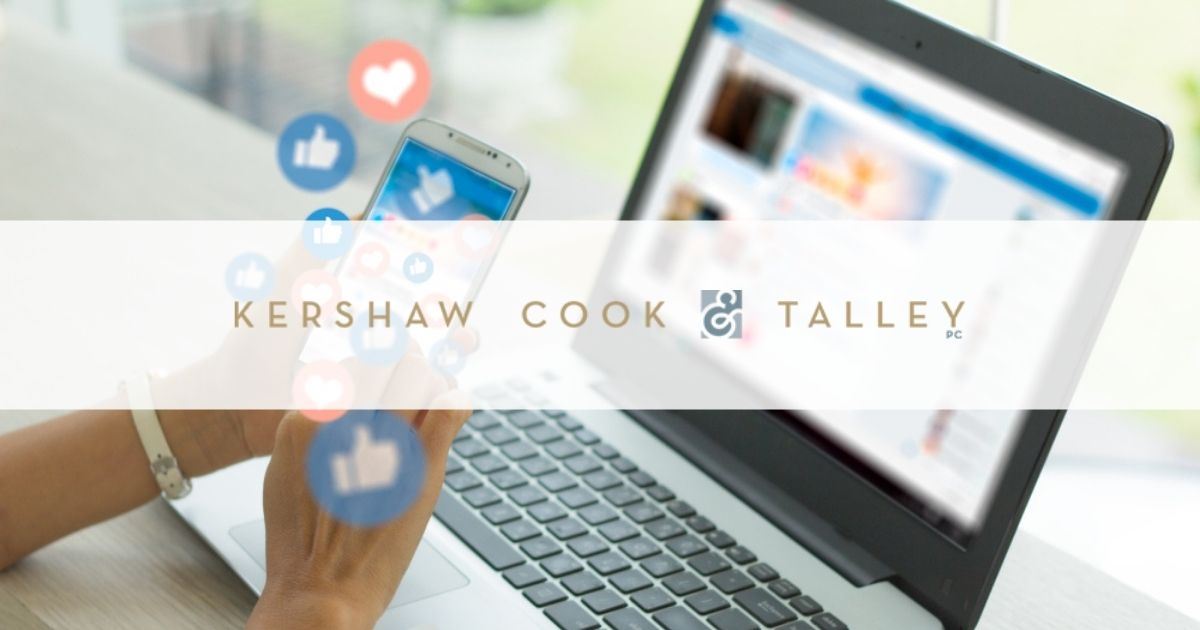Practically everyone has a smartphone in our society. Most people who have a smartphone use it to access social medial apps and platforms, like Facebook, Instagram, TikTok, Twitter, and Snapchat. While social media is an amazing tool that allows people to connect, communicate, and share information instantly, no matter where they are in the world, it can also be the source of unsafe mental health complications, so much so that some healthcare professionals are now looking into “social media addiction.”
Signs of Social Media Addiction
Although it has not yet been officially recognized by mental health and psychological research organizations, social media addiction is very real to millions of Americans, especially children, teenagers, and young adults. By some estimations, one-in-ten people – or about 33 million people – have a social media addiction to some degree. Could their addictions be blamed partially or fully on the companies that create and host social media platforms?
Early signs of social media addiction include:
- Using social media for more than 4 hours or 10 times in a day.
- Insomnia when social media is not used before bed.
- Unable to feel happy unless on social media.
- Browsing social media in unsafe situations such as while driving.
It is important to acknowledge that social media addiction is not something that is purely imagined or that can be stopped by “putting the phone down.” The addiction is believed to be rooted in the brain’s biochemistry as controlled by neurotransmitters. Specifically, someone with a social media addiction can feel a rush of dopamine when looking at a social media post, even if that post is showcasing something negative like the glorification of self-harm or eating disorders.
Harmed Caused by Social Media Addiction
Social media companies want their users to be on their apps at all hours of the day. But is that even safe? Recent early studies into the impact of frequent social media use on a person’s psychology and emotional welfare have shown that there could be serious consequences, up to and including addiction.
Five of the most dangerous consequences of social media addiction are:
- Suicide*: Perhaps the most pressing issue caused or exacerbated by social media addiction is the increased risk of suicidal thoughts and behavior. Impressionable children and teenagers who are constantly exposed to unrealistic body standards, unjust social expectations, and cyberbullying on a social media platform may become more prone to self-esteem loss and self-harm.
- Eating disorders and body dysmorphia: For years, social media platforms have been criticized for promoting unsafe dietary habits and body health, even worse than fashion magazines. Teenagers who see people with unrealistic bodies such as those that have been heavily edited with filters or with unsafe eating disorders like anorexia will feel subconscious pressure to look the same way.
- Mental health difficulties: Repeated exposure to posts that can damage mental health and frequent exchanges with cyberbullies can cause a user to experience mental health difficulties like depression and anxiety, regardless of age. If left untreated or undiagnosed, such mental health difficulties will usually worsen and any other conditions like body dysmorphia will worsen, too.
- Sexual exploitation: Teenagers and children on social media platforms without supervision can be preyed upon by sexual predators. Direct messages (DMs) in particular give sexual predators a way to harass and abuse children without any sort of oversight or supervision. If an abused child does not realize that what is happening is wrong, then they might not even tell their parents about the abuse.
(* If you have been self-harming or have had thoughts of suicide, then please know that there are so many people who care about you, even people who have never spoken to you before. At any time, you can call the National Suicide Hotline at 800-273-8255 and get help. You can speak to someone who is there to support you and get connected to local resources dedicated to helping people in situations like yours. You are not alone. You always have options. We know the world is better with you in it.)
Treatments for Social Media Addiction
As with any addiction, social media addiction can be addressed and treated. The type of treatment used will vary from case to case and will also factor in the severity of the addiction. Some people might benefit from psychological and behavioral therapy sessions with mental health specialists. Others could try a more direct approach and limit how much time they spend on social media apps. Parents can use security settings in apps and on smartphones to place these limits as well.
If you have any questions about how to deal with a potential social media addiction, then you should seek the help of a medical professional. Because social media addiction is not an officially recognized mental health disorder, a doctor or psychiatrist will not diagnose it. But they can still help you and/or your child come up with a potential treatment plan before any more harm comes from the addiction.
Parents Bringing Social Media Addiction Lawsuits
A Connecticut woman recently filed a lawsuit against Meta Platforms, which owns Facebook and Instagram, and Snap, which owns Snapchat. In her lawsuit, she alleges that the social media giant did not protect her 11-year-old daughter from the dark side of its apps and that her addiction to those apps contributed significantly to her eating disorders, self-harm, depression, insomnia, and eventual suicide.
Although this case is in its early stages, it is already significant in its implications and potential. The basis of the lawsuit is that the social media companies did not do enough to protect their users from exposure to unsafe people and content. It also alleges that the app used algorithms to intentionally place more and more unsafe content in front of users who had previously viewed similar content or posts.
If more parents come forward with stories of their children suffering from social media addiction and its most dangerous consequences, then it might be possible to bring more claims and lawsuits against social media companies. The goal is to not only get justice for the families who have been hurt in this way but also to help make sure it never happens again. Unfortunately, lawsuits are one of the only mechanisms that can compel corporations to make positive changes.
Kershaw Talley Barlow in Sacramento, California is currently investigating potential social media addiction claims from parents of children who hurt themselves, developed an eating disorder, or committed suicide due to this addiction. The social media companies could be liable, but diligent legal work will need to be done to reach that point. Contact our firm onlineor call (916) 520-6639 now if you want to know more.
Important Resources & Continued Reading
- National Suicide Hotline: 800-273-8255
- National Suicide Prevention Lifeline website
- Resources for Anorexia, Bulimia and Binge Eating Disorder (Eating Disorder Hope®)
- National Eating Disorders Association helpline
- Preventing Youth Suicide: Tips for Parents & Educators (National Association of School Psychologists)
- Connecticut mother sues Meta and Snap, alleging they contributed to suicide of 11-year-old daughter who had ‘extreme addiction’ to social media (Business Insider)
- Eating Disorders and Social Media Prove Difficult to Untangle (The New York Times)
- Facebook Knows Instagram Is Toxic for Teen Girls, Company Documents Show (The Wall Street Journal)
- Social Media Addiction (Addiction Center)
- What is Social Media Addiction? (Healthline)


